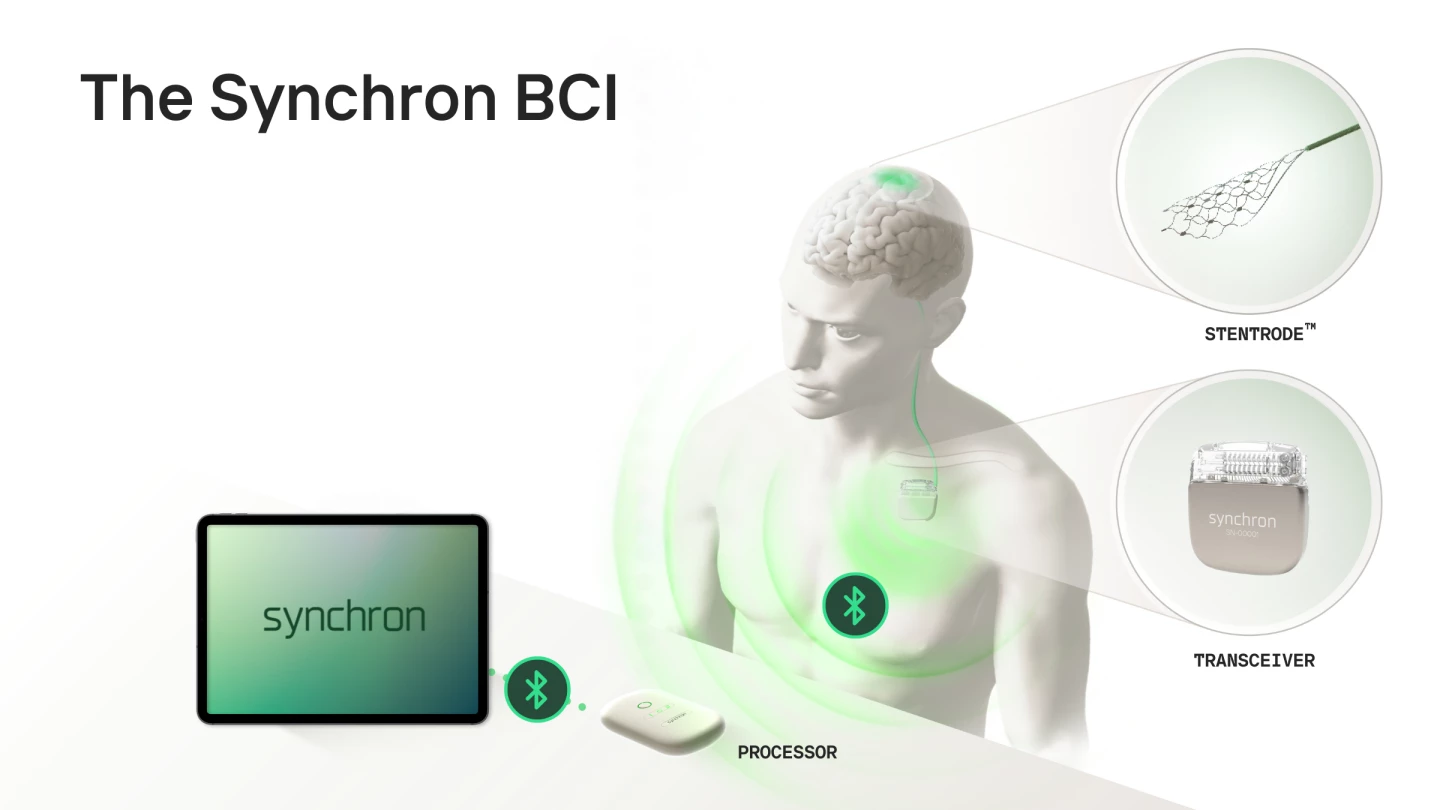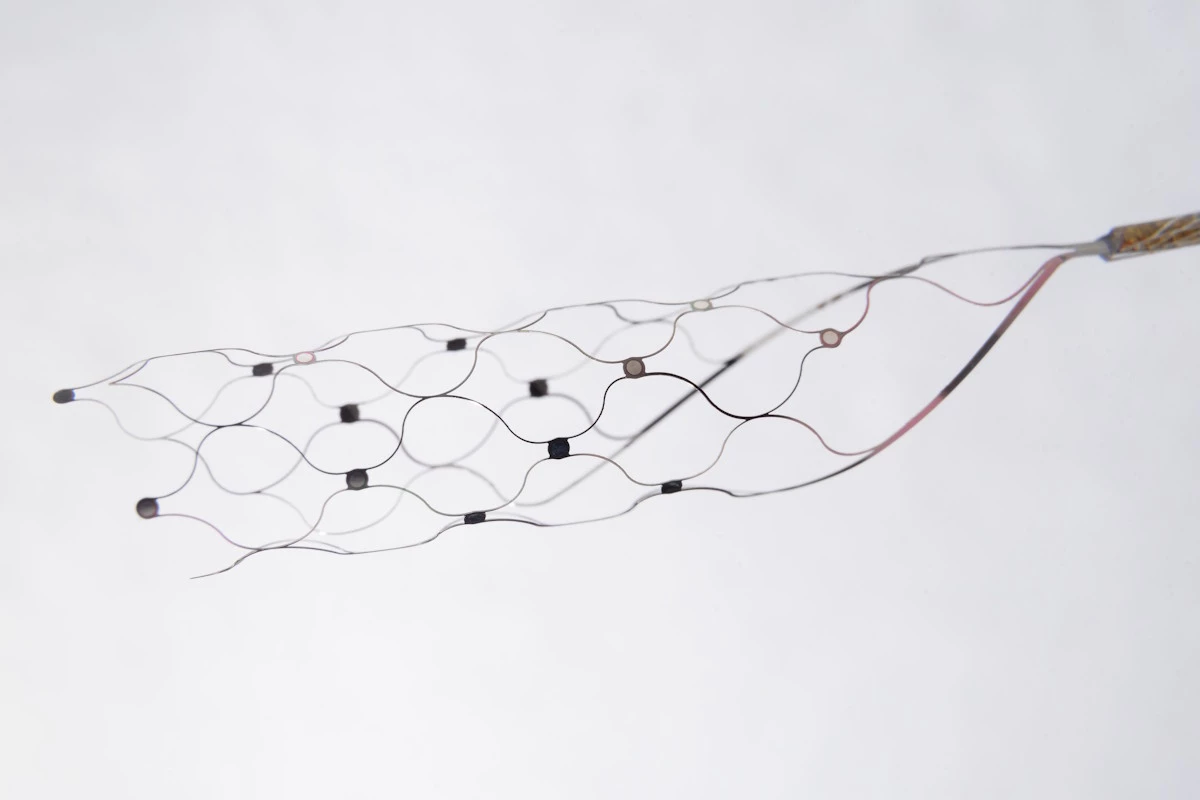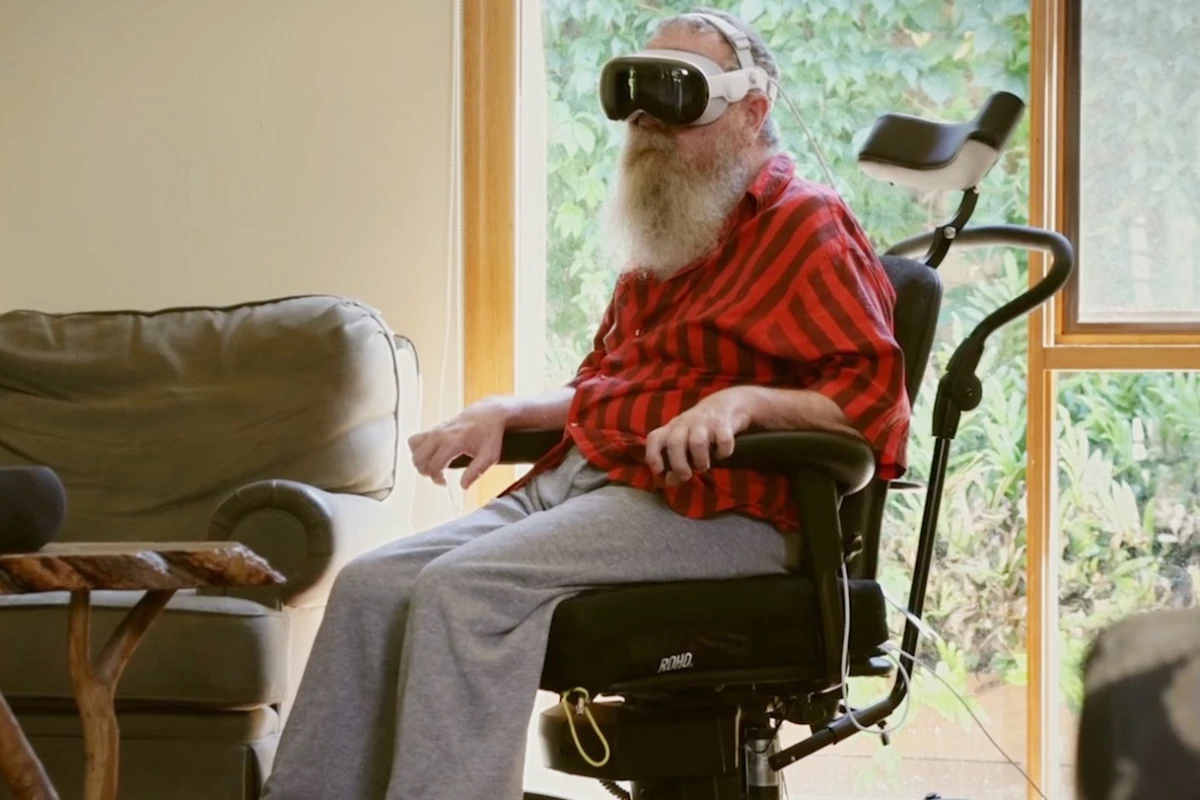Apple is getting into the brain-computer interface (BCI) business, reveals a press release from New York-based startup Synchron. The idea is to enable people with limited mobility to use iPhones, iPads, and the Vision Pro headset by transmitting commands through their minds.
Synchron, which was founded in 2016 by neurologist Dr. Tom Oxley, is a biomedicine outfit that's exploring an endovascular approach to connecting devices to the human brain. The startup, which is backed by Bill Gates and Jeff Bezos, uses a proprietary piece of hardware to detect brain signals without requiring open brain surgery to install – as is the case with Elon Musk-fronted Neuralink's tech.
The company's 'Stentrode' consists of a tubular metal mesh with electrode sensors; it's designed to be threaded through a blood vessel that reaches the brain. When it detects motor signals there, it sends those to a small transmitter at the other end of its wiring, which is worn by the user. The transmitter then beams the signals to a wireless processor, which appears to be the size of a smartphone, to interpret and deliver them as commands in real time to a personal device like an iPhone.

An ALS patient in the US used Synchron's tech last July to control an Apple Vision Pro AR headset, and play a card game, send texts, and watch streaming video. Today's news appears to build on that successful trial: Apple now officially recognizes neural interfaces as a native input category for its personal devices, alongside touch, voice, and typing.
"This marks a defining moment for human-device interaction," Oxley noted. "BCI is more than an accessibility tool, it’s a next-generation interface layer. With BCI recognized as a native input for Apple devices, there are new possibilities for people living with paralysis and beyond."

That will see Synchron become the first biomedical firm to achieve native integration with Apple's new BCI Human Interface Device (BCI HID) profile. "When we ask our clinical trial participants what they want to do, it’s always about communication and creativity," CCO Kurt Haggstrom said. "And to most people, that means using their Apple devices. For Apple to recognize that need, and respond to it, demonstrates how much they value accessibility for their users. It has been an honor to meet with their teams and provide feedback to help make BCI HID a reality.”
Later this year, Synchron will conduct clinical trials with participants facing profound physical impairments, using BCI HID-compatible features on the aforementioned Apple devices. Oxley has previously said 100 million people around the world face physical challenges including paralysis that prevent them from using digital devices; integrating Synchron's tech with Apple's popular products could help make a dent in that figure in the coming years.
Source: Synchron via Business Wire






